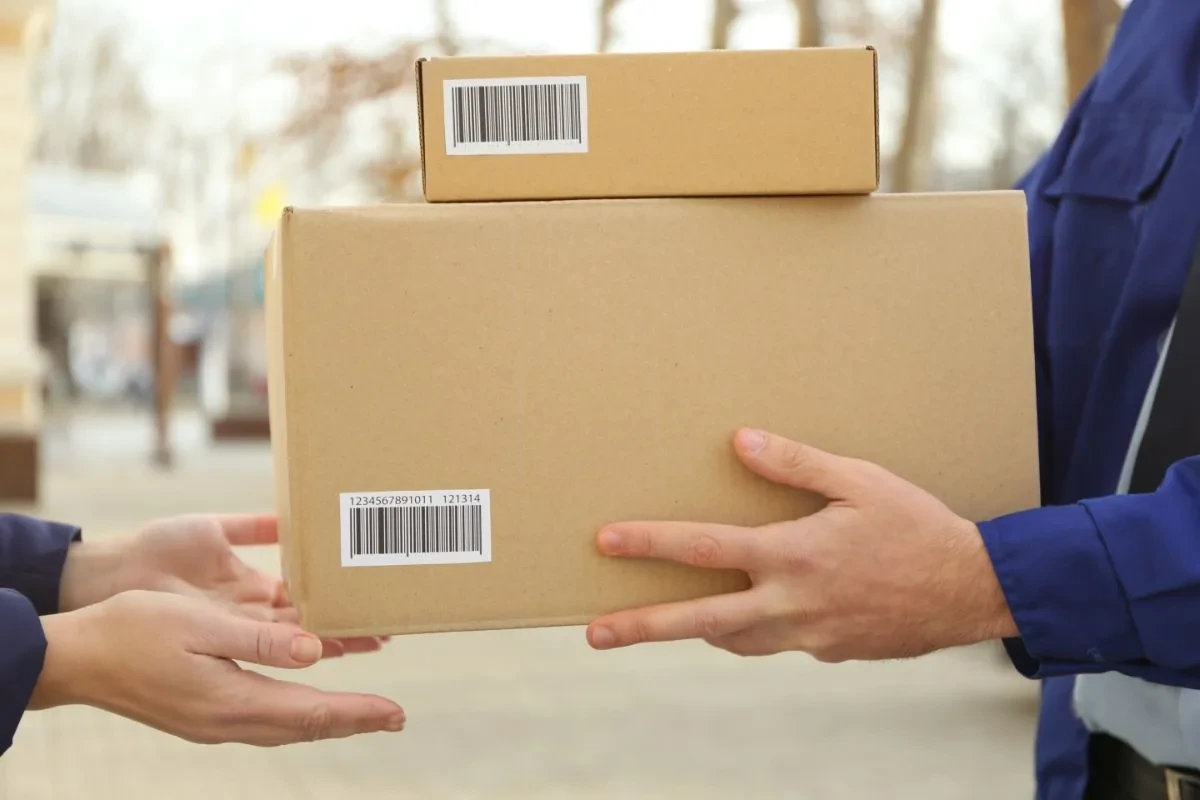Do hotels send mail to your house? Answer is – Yes, hotels often send mail to your house if you’ve left personal items behind. Hotels understand that mistakes happen and want to help guests retrieve belongings. The process varies depending on the hotel’s policies and the value of the item, but many hotels are willing to return left-behind items via mail.
Summary
- Hotels generally will try to return forgotten items to their guests.
- The process of returning items can vary depending on the hotel.
- Guests are often responsible for the cost of shipping forgotten items.
- It’s essential to contact the hotel as soon as possible when you realize you’ve left something behind.
Do Hotels Send Mail to Your House

You’ve just returned home from a fantastic vacation or a successful business trip, ready to unpack and settle back into your routine. But as you start to sort through your luggage, a sinking feeling hits – something’s missing. The realization that you’ve left a personal item behind at the hotel can be frustrating and, in some cases, downright distressing.
Fortunately, hotels understand that guests are human and occasionally forget things. Many properties have dedicated Lost and Found departments and well-defined procedures to help reunite guests with their belongings. Let’s explore why retrieving forgotten items is essential and review the standard policies hotels implement when managing lost property.
The Importance of Retrieving Forgotten Items from Hotels
Lost belongings might seem like a minor inconvenience in the grand scheme, but their importance shouldn’t be underestimated. Here’s why:
Sentimental Value: Items like jewelry, childhood keepsakes, or family heirlooms often hold irreplaceable sentimental value. Losing them can be emotionally upsetting, regardless of their monetary worth.
Financial Loss: Replacing expensive items like laptops, smartphones, cameras, or designer clothing can put a significant dent in your finances.
Essential Items: Forgetting crucial belongings such as prescription medication, passports, or important business documents can disrupt your daily life and cause major travel inconveniences.
Peace of Mind: Knowing that you’ve done everything possible to recover a lost item, even if it’s ultimately unsuccessful, can provide a sense of closure and reduce anxiety.
Overview of Hotel Policies Regarding Lost Belongings

While specific procedures vary between hotels, most follow a general framework for dealing with lost and found items:
Documentation: When an item is found, hotel staff typically record details, including a description of the item, the date and location where it was found, and the finder’s contact information. This creates a log for tracking and referencing purposes.
Storage: Lost items are often stored in a secure location within the hotel, sometimes categorized based on value or type (electronics, clothes, etc.).
Holding Period: Hotels usually hold lost items for a certain time, ranging from a few weeks to several months. This gives guests a reasonable period to realize they’re missing something and contact the hotel.
Guest Contact: If the item has identifying information, such as a name tag or luggage tag, the hotel may proactively attempt to contact the guest.
Disposal or Donation: Unclaimed items may be donated to charity, given to the employee who found them, or disposed of in accordance with the hotel’s policies and local regulations.
Emily Peterson Expert Opinion
Emily Peterson, a seasoned hospitality manager with over a decade of experience in the industry, emphasizes the importance of contacting the hotel immediately, “The sooner you realize you’ve left something behind, the higher the chances of recovery. Items can be misplaced or accidentally discarded during housekeeping, so time is of the essence.”
Do Hotels Send Mail to Your House?
The short answer is yes, many hotels will send left-behind items to your home address. However, this service isn’t always guaranteed and depends on several factors. Let’s examine the circumstances that might lead a hotel to ship your forgotten belongings:
1. Circumstances When Hotels Will Mail Items:
High-Value Items: If you’ve left something expensive behind, such as jewelry, a high-end electronic device, or important documents, the hotel is more likely to go the extra mile to return it. They understand the financial and logistical burden of replacing such items.
Items with Sentimental Significance: Hotels recognize that some objects have value beyond their price tag. If you inform them that the lost item is a family heirloom, keepsake, or has special meaning to you, they might be more willing to mail it.
Guest Loyalty Status: Frequent guests or members of a hotel’s loyalty program often receive preferential treatment. The hotel may be more inclined to mail back your belongings as a gesture of goodwill and to foster customer loyalty.
Proactive Guest Initiative: When you promptly contact the hotel, provide clear descriptions of the lost property, and express a willingness to cover shipping costs, it greatly increases the likelihood that they’ll agree to mail your item.
2. Factors Influencing the Decision to Mail Items
Item Value: While hotels may be sympathetic to lost items of sentimental value, shipping costs can be a deterrent. For low-value items, the expense of mailing them might outweigh the benefit of returning them.
Item Size and Weight: Bulky or heavy items are more expensive and inconvenient to ship. Hotels may have limited storage space and may be less willing to handle oversized items.
Hotel Policies: Some hotels have strict internal policies regarding mailing lost items. They may limit the types of items they return by mail or might not offer this service at all.
Shipping Costs: Ultimately, most hotels expect the guest to bear the shipping and potentially handling costs associated with returning a lost item. If these costs are prohibitive, the hotel is less likely to mail your belongings.
Destination: Shipping items internationally can be complicated due to customs regulations and increased costs. Hotels might be more hesitant to mail items overseas.
Sarah Thompson Expert Opinion
Sarah Thompson, Front Office Manager at a well-respected boutique hotel, explains: “Our primary goal is to help guests recover their lost belongings. However, we need to balance that with logistical and financial considerations. When it makes sense for both the guest and the hotel, we’re happy to facilitate the return of items via mail.”
How the Process Works

Retrieving a lost item from a hotel usually involves a few key steps. Understanding this process can help you navigate the situation effectively and maximize your chances of getting your belongings back.
1. Contacting the Hotel
The Importance of Timely Action: The moment you realize you’ve left something behind, don’t delay! Contact the hotel as soon as possible. Items might get moved during housekeeping, accidentally discarded, or claimed by another guest. The longer you wait, the lower your chances of recovery become.
How to Contact the Hotel: Ideally, call the hotel directly. This is faster than emailing and allows for immediate conversation. Look for the main phone number on their website. Ask to be connected to either the Lost and Found department if they have one, or the front desk.
Providing Accurate Descriptions of Lost Items: Be as specific as possible when describing your lost item. Include the following details:
- Type of Item (e.g., clothing, jewelry, electronics, documents)
- Brand and Model (if applicable)
- Color, Size, and Any Distinguishing Features
- Where You Think You Left It (e.g., your room, lobby, restaurant)
- Approximate Date and Time You Were Last in Possession of the Item
James Miller Expert Opinion
James Miller, a veteran hotel concierge with over 15 years of experience, advises, “The more details you can provide, the better. Think like a detective! A vague description like ‘my black suitcase’ won’t be as helpful as ‘my black Samsonite hard-shell suitcase with a broken wheel and a colorful luggage tag’.”
2. Hotel’s Procedures
Once you’ve contacted the hotel, here’s what typically happens on their end:
Locating Your Items:
- Search: The hotel staff will search the area where you indicated you lost the item, as well as their Lost and Found storage.
- Log Check: They’ll consult their lost and found log to see if your item has been turned in and matches your description.
Confirmation: If the hotel successfully locates your item, a staff member will contact you to confirm and verify ownership. They might ask additional questions to ensure the correct item is being returned.
Determining Shipping Options and Costs:
- Shipping Carrier: The hotel will usually determine the most suitable shipping carrier based on your location, the urgency, and the item’s size and weight. Common options include services like FedEx, UPS, or your local postal service.
- Cost Calculation: They’ll calculate the shipping costs, including any necessary packaging and handling fees.
- Guest Responsibility: In most cases, you’ll be expected to cover the cost of shipping your lost item. Be prepared to provide payment information, such as a credit card.
Olivia Williams Expert Opinion
Olivia Williams, Guest Services Manager at a large resort hotel, notes, “We always try to work with our guests to find the most cost-effective and secure way to return their belongings. Open communication throughout the process is crucial.”
3. Arranging for Payment
Once the hotel has located your item and calculated shipping costs, the next step is to arrange payment. Here’s what you can typically expect:
Methods of Payment: Most hotels accept payment over the phone using a credit or debit card. This is often the most convenient and secure method. Some establishments might also allow you to send payment through online platforms like PayPal or Venmo, but this may vary depending on the hotel.
Confirmation: Always ask for email confirmation of your payment, including a breakdown of the charges (shipping costs, handling fees, etc.). This will serve as a record of the transaction should any questions or discrepancies arise.
Prepayment Requirement: Hotels generally require prepayment before they proceed with shipping your lost item.
Thomas Byrne Expert Opinion
Thomas Byrne, Director of Operations at a reputable hotel chain, stresses: “Our priority is to reunite guests with their belongings, but we also need to ensure that the hotel is not incurring financial losses. Prepayment policies help us streamline the process and protect the hotel’s interests.”
4. Shipping and Receiving Your Items
With payment secured, the final phase involves the hotel shipping your forgotten items and you receiving them safely at your home address. Here’s how it typically unfolds:
Packaging and Handling: The hotel staff will carefully package your item to protect it during transit. They may use materials like bubble wrap, packing peanuts, or sturdy boxes, depending on the nature of the item being shipped. Some establishments might charge a nominal handling fee for these services.
Shipping Label: The hotel will create a shipping label with your name, complete address, and any necessary customs information (for international shipments).
Carrier Pickup: The hotel will usually arrange for pickup by the chosen shipping carrier or may drop off the package at the carrier’s designated location.
Tracking Information: Once the item is shipped, the hotel should provide you with a tracking number. This allows you to monitor the package’s journey and estimate the delivery date.
Delivery: The designated shipping carrier will deliver the package directly to your doorstep. Be sure to be available to sign for it if required, or arrange for an alternate secure delivery location.
Inspection Upon Arrival: As soon as you receive the package, open it and carefully inspect your item to ensure it arrives in its original condition and is undamaged.
Isabella Rodriguez Expert Opinion
Isabella Rodriguez, Head of Housekeeping at a luxury hotel, emphasizes: “We take pride in packing and shipping lost items with the utmost care. Our goal is to have your belongings returned to you just as you left them.”
What Happens If You Don’t Claim Your Items

While hotels make efforts to reunite guests with their belongings, it’s not always possible. If you fail to contact the hotel within a reasonable timeframe or the hotel can’t reach you, your forgotten item may fall into the category of “unclaimed property.” Here’s what you need to know:
1. Hotel’s Policies on Holding Unclaimed Items
Holding Period: Hotels typically hold onto unclaimed lost and found items for a specific period. This can range from a few weeks to several months. Depending on the hotel and local regulations, the holding period may vary.
Factors Influencing the Holding Period:
- Item Value: High-value items might be held for longer in hopes that the owner eventually makes contact.
- Storage Space: Hotels with limited storage space might have shorter holding periods for unclaimed items.
- Hotel Policies: Each hotel has its own internal policies regarding the management of lost and found property.
Michael Davis Expert Opinion
Michael Davis, a seasoned hotel general manager, explains: “Our holding periods aim to strike a balance. We want to give guests ample time to reclaim their belongings, but we can’t be a long-term storage facility for unclaimed items.”
2. Potential Outcomes (Donation, Disposal)
Once the hotel’s designated holding period has expired, they have a few options for dealing with unclaimed items:
Donation: Many hotels partner with local charities and donate unclaimed items in good condition. Clothing, toiletries, books, and toys are common items often donated to those in need.
Employee Distribution: In some hotels, unclaimed items may be offered to employees, particularly if the items are practical or useful, like basic clothing or unopened toiletries.
Disposal: Items that are damaged, heavily worn, or deemed unsuitable for donation might unfortunately be disposed of. Hotels often follow local environmental regulations when it comes to the disposal of items.
Sarah Johnson Expert Opinion
Sarah Johnson, a Loss Prevention Specialist at a hotel group, notes: “We always try to find a positive outcome for unclaimed items. Whether through donation or responsible disposal, our goal is to ensure nothing goes to waste if we can help it.”
Tips for Preventing Lost Items

Forgetting something at a hotel can be frustrating and disruptive. Here are some practical preventative tips that can save you a lot of hassle:
Strategies for Packing
Create a Master Packing List: Develop a comprehensive packing list that you can use for every trip. This list should include all essential clothing, toiletries, medications, electronics, documents, and any specialized items you might need for your specific destination and activities. Customize it for each trip.
Pack Smartly:
- Visibility: Use clear packing cubes or organizers to easily see the contents of your luggage.
- Compartmentalize: Designate specific areas of your suitcase for different categories of items (clothes, electronics, toiletries, etc.). This organized approach will help you stay on top of what you’ve packed and where.
Check High-Risk Areas: Before leaving your hotel room, pay extra attention to areas where items are easily overlooked:
- Under the bed and furniture
- Closets and drawers
- The bathroom (countertops, shower, towel racks)
- Safes
Charge Electronics in One Place: Designate a specific spot in your hotel room to charge all your electronic devices (phone, laptop, smartwatch, etc.). This will help you remember to gather them all in one place before departure.
Double-Checking Before Departure
Methodical Room Sweep: Don’t just glance around the room; do a systematic sweep. Start in one corner and work your way around, looking under furniture, inside drawers, and in all common “hiding spots.”
Set an Alarm: Give yourself ample time to pack and do a thorough check of the room. Set an alarm on your phone as a reminder to start this process well before your scheduled checkout time.
Utilize Checklists: Refer to your master packing list as you are gathering your belongings. Check off items as you pack them to ensure nothing gets left behind.
Take Photos: If you’re particularly worried about forgetting something, snap a few photos of your packed suitcase and the room layout before you leave. This can serve as a visual reference if you need to recall where you might have left an item.
Emily Brown Expert Opinion
Emily Brown, a travel blogger and frequent hotel guest, shares her top tip: “I always place items I don’t want to forget right by the room’s door. My purse, keys, and any unusual items I’ve brought for the trip go in a pile that’s impossible to miss as I’m walking out.”
FAQs
Do all hotels have lost and found departments?
While most hotels have some system for handling lost and found items, not all have dedicated “departments.” Smaller establishments might have a designated staff member or area where found items are collected and stored. The important thing is to contact the hotel directly to inquire about their procedures.
Is there a fee associated with retrieving lost items?
Whether or not hotels charge fees for returning lost items varies. In most cases, you’ll be expected to cover the cost of shipping as well as any handling fees the hotel might have. Some hotels with higher-end clientele might waive such fees as a gesture of customer service.
What if my lost item is valuable?
Hotels generally take extra care when dealing with high-value items. They might store these items more securely and hold onto them for longer periods, hoping the owner contacts them. Be sure to emphasize the value of your lost item (both financial and sentimental) when interacting with hotel staff.
Can I have someone else pick up my lost item?
Yes, you can often arrange for a friend, family member, or courier service to pick up your lost item on your behalf. The hotel will likely require authorization from you, confirming the identity of the person who will be retrieving the item. You may need to provide details like their name, ID, and contact information.
How long will the hotel hold my lost item?
Hotel policies on holding periods for unclaimed items vary. Some hold items for a few weeks, while others have longer retention periods. It’s always best to contact the hotel as soon as possible, regardless of their specific policy, as items might be disposed of or donated over time.
Conclusion
Losing a belonging while traveling can be stressful. However, understanding the typical procedures hotels implement and taking steps to prevent leaving things behind in the first place can give you peace of mind.
Key Takeaways
- Timeliness Matters: Contact the hotel the moment you realize you’ve forgotten something.
- Detailed Descriptions Are Crucial: Help the hotel staff identify your item accurately.
- Proactive Approach Works Best: Take preventative measures during packing and thoroughly check your room before departure.
- Be Prepared for Shipping Costs: In most scenarios, you’ll be responsible for covering shipping charges when having items mailed to you.







